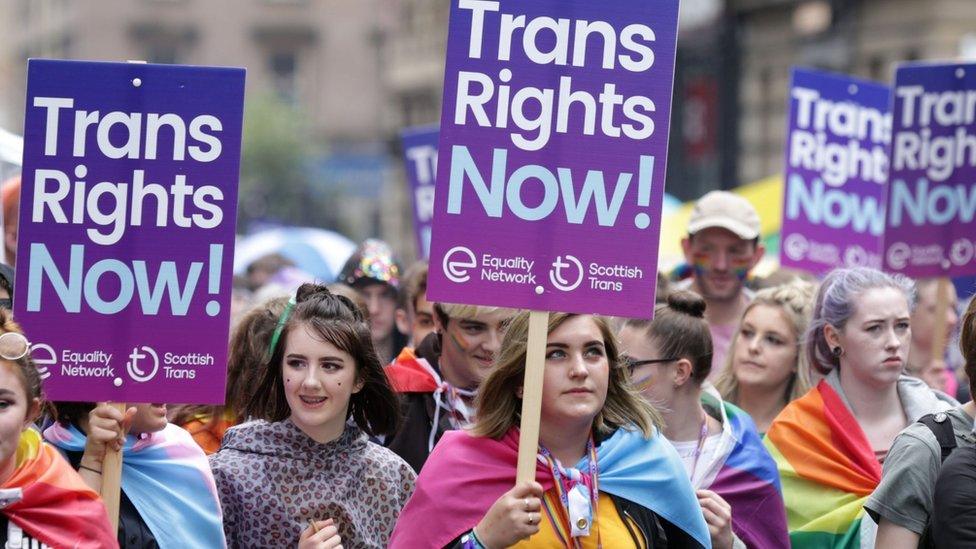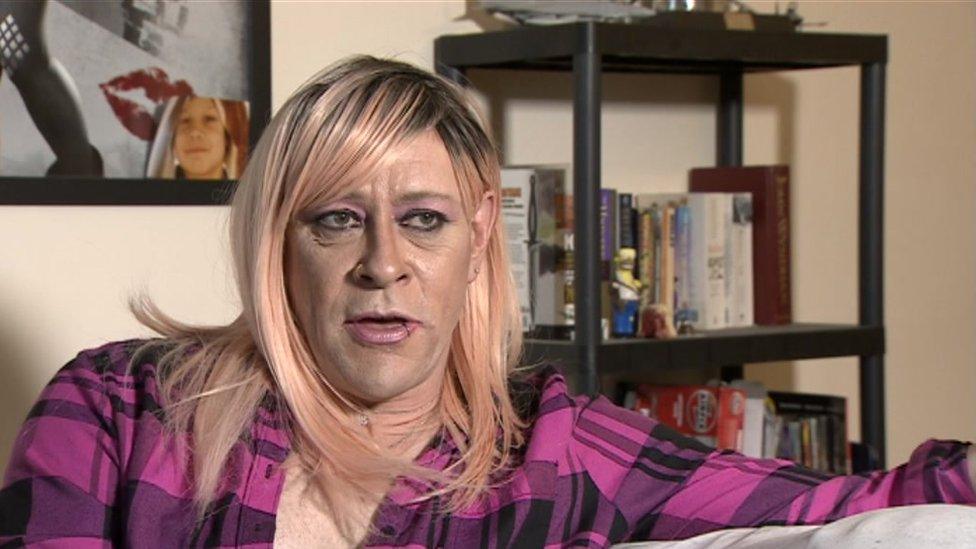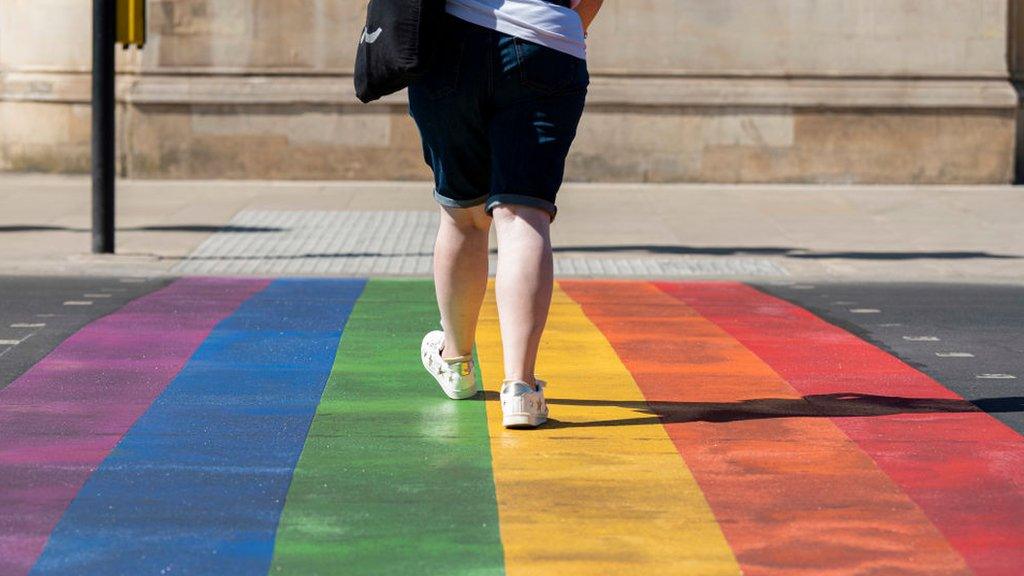Labour drops pledge to introduce self-ID for trans people
- Published

Labour has ruled out introducing a self-ID system to allow people to change their legal sex without a medical diagnosis.
Leader Sir Keir Starmer has previously said his party would introduce such a system if it wins power.
But shadow women and equalities secretary Anneliese Dodds has now said medical diagnosis upholds "confidence in the system".
She added that the requirement also helps people access NHS support.
In a article for the Guardian, external, she wrote that Labour would streamline the current medical diagnosis rules, calling them "demeaning".
The new Labour position appears to be a compromise that has emerged from a party event in Nottingham over the weekend to discuss policy.
It opens up a split with Scottish Labour, which has previously voted to remove the medical diagnosis requirement and has since confirmed it "continues to support the de-medicalisation of the process in Scotland".
Under current rules, people who want to change legal sex need to provide a medical report showing a diagnosis of gender dysphoria.
This is defined by the NHS as a "sense of unease that a person may have because of a mismatch between their biological sex and their gender identity".
Applicants also have to provide evidence of living full time in their acquired gender for at least two years.
Some campaigners say the the requirement is excessively bureaucratic and invasive, and have long argued for a non-medical process - known as self-identification - instead.
The government ruled out adopting this approach in 2020 after a consultation, but has reduced the fees and moved the process online.
'Mistakes'
Labour pledged to introduce a self-identification system under previous leader Jeremy Corbyn and the policy was in the party's 2019 general election manifesto.
Sir Keir reaffirmed the 2019 manifesto commitment to "introduce self-declaration" in a June 2021 video for LGBT website Pink News, external.
However, Ms Dodds has now confirmed that the party would keep the need for a gender dysphoria diagnosis, calling it an "important part" of the process for obtaining a gender recognition certificate.
"Requiring a diagnosis upholds legitimacy of applications and confidence in the system," she wrote.
She said that it also helped refer trans people into the NHS for support services, citing low levels of awareness about how to access them.
She added that Labour wanted to avoid the "mistakes" made by the Scottish government, whose new law to ditch medical reports is subject to an ongoing legal wrangle with the UK government.
Scottish ministers' legislation - endorsed by Scottish Labour in the Scottish Parliament - showed a "cavalier approach", she added.
However, she added the current requirement to apply to an "anonymous" panel to obtain a certificate should be replaced, calling it "demeaning for trans people and meaningless in practice".
Instead, she said it "should be enough" for registrars to sign off the application, based on diagnosis from one doctor.
'Signalling a retreat'
The LGBT+ Labour group said the party's new position would be a "huge step forward" for trans people over the current government stance.
But it added the party was "signalling a retreat on their policy of de-medicalised self-ID for the trans community at the next general election".
Labour MP Lloyd Russell-Moyle, a patron of the group, told the BBC it would push for further changes, including giving non-medical professionals such as social workers the power to "externally verify" someone's acquired gender.
Rosie Duffield, who had threatened to quit as a Labour MP over the party's previous stance, said she welcomed the retention of medical reports, calling it the "core thing" demanded by women's groups.
Ms Duffield, the MP for Canterbury, has opposed self-ID as a way for trans people to gain access to single sex spaces such as domestic violence refuges and prisons.
Speaking to BBC Radio 4's Today programme, she called for more clarity on the party's position ahead of the general election, expected next year, adding it still included a "bit of confusion and a bit of fence-sitting".
Women and Equalities Minister Kemi Badenoch said Labour's new position is a "copy and paste" of the government's position.
Adding that some Labour MPs had previously attacked the Conservative position as prejudiced, she accused the party of "bare-faced hypocrisy".
Related topics
- Published16 January 2023

- Published9 January 2020

- Published16 May 2024
